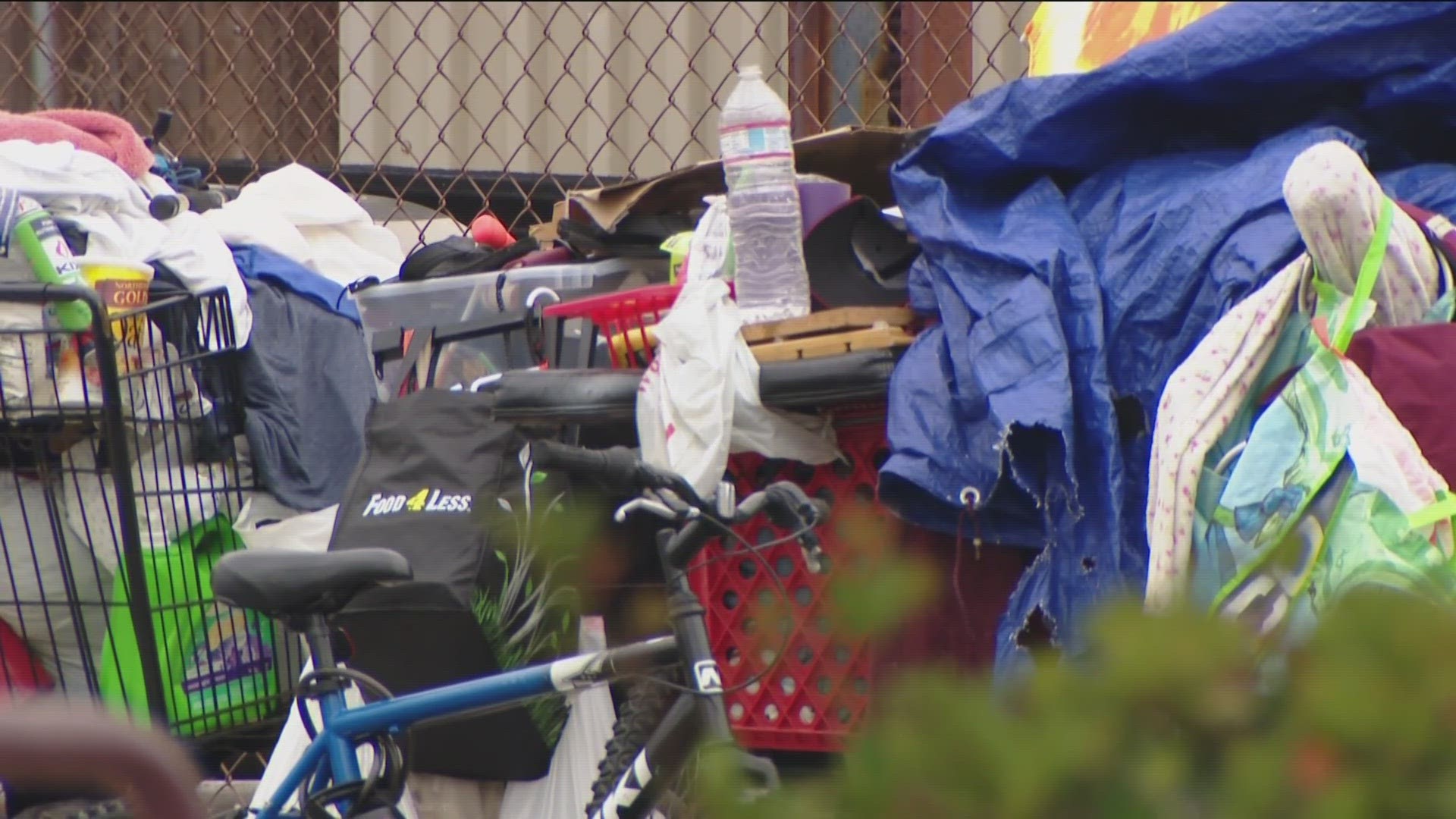ESCONDIDO, Calif. — The city of Escondido is eyeing a new "tough on crime" approach to tackling homelessness.
Last year's "Point-in-Time Count" found more than 300 unsheltered people living in Escondido: the largest homeless population of all North County cities.
This new proposed city policy on addressing homelessness in Escondido rejects the "Housing First" approach in favor of focusing on public safety, with tougher consequences for homeless people who break the law.
"That is the state's approach — Housing First — which works for some people. Other people need a little more accountability," said Escondido Mayor Dane White, who overcame homelessness and addiction himself.
White helped draft this new policy on homelessness, which takes a tougher approach to homelessness, while also proposing a city-run shelter that would mandate sobriety and would serve only Escondido's homeless residents.
At a forum organized Tuesday night by Interfaith Community Services, a local nonprofit that helped find permanent housing for more than 1,400 people last year, participants had concerns and questions about this proposal.
"The question to be answered is, how will this policy be enacted?" said Greg Anglea, CEO of Interfaith.
"Without creating places for people to go, whether it is a short-term emergency shelter bed, a longer term treatment program, or an affordable apartment, it's unclear what difference a policy like this makes."
Last month, the County proposed using a two-acre site in downtown Escondido for a shelter: a proposal that was later rescinded after significant pushback from the city's mayor.
"I understand that that might not be the ideal place for it," said Mary Ferro, Director of Outreach & Education at Interfaith.
"You really need to work collaboratively with other communities so that you can overall really address the problem," Ferro added. "Pushing it into another area doesn't help."
Many residents took issue with the mayor's idea of rejecting the "Housing First" approach.
"Of course it is a housing issue," said Interfaith board member Rev. Meg Decker. "People don't choose to live in their cars because they have better options, They're living in their cars, on the streets because they don't have housing, they can't afford housing."
"He's trying to find solutions," Ferro added, "We just want to have more voices in what other possibilities there are."
Escondido's city council will take up this new proposed policy at its Wednesday afternoon council meeting.
WATCH RELATED: San Diego man’s journey from homelessness to his own apartment (Feb. 12, 2024)

